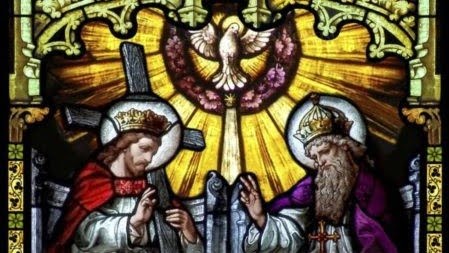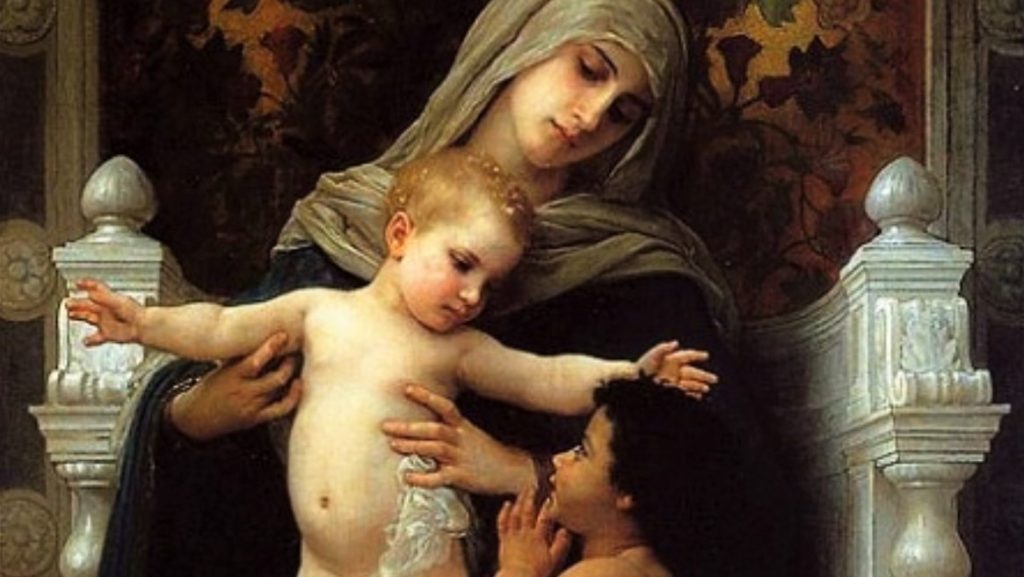December 31: POPE BENEDICT XVI’S REFLECTION ON THE LAST DAY OF THE YEAR.
Praise and Thanksgiving

At the end of a year which has been particularly eventful for the Church and for the world, mindful of the Apostle’s order, “walk . . . established in the faith . . . abounding in thanksgiving” (cf. Col 2:6-7), we are gathered together this evening to raise a hymn of thanksgiving to God, Lord of time and of history. . . .
Yes, it is our duty, as well as a need of our hearts, to praise and thank the Eternal One who accompanies us through time, never abandoning us, and who always watches over humanity with the fidelity of his merciful love.
We may well say that the Church lives to praise and thank God. She herself has been an “action of grace” down the ages, a faithful witness of a love that does not die, of a love that embraces people of every race and culture, fruitfully disseminating principles of true life. As the Second Vatican Council recalls, “the Church prays and likewise labors so that into the People of God, the Body of the Lord and the Temple of the Holy Spirit, may pass the fullness of the whole world and that in Christ, the head of all things, all honor and glory may be rendered to the Creator, the Father of the universe” (Lumen Gentium, no. 17). Sustained by the Holy Spirit, she “presses forward amid the persecutions of the world and the consolations of God” (Saint Augustine, De Civitate Dei XVIII, 51, 2), drawing strength from the Lord’s help. Thus, in patience and in love, she overcomes “her sorrows and her difficulties, both those that are from within and those that are from without”, and reveals “in the world, faithfully, however darkly, the mystery of her Lord until, in the consummation, it shall be manifested in full light” (Lumen Gentium, no. 8). The Church lives from Christ and with Christ. He offers her his spousal love, guiding her through the centuries; and she, with the abundance of her gifts, accompanies men and women on their journey so that those who accept Christ may have life and have it abundantly. . . .
Enlightened by the Word of God, we sang the “Te Deum” with faith. There are so many reasons that render our thanksgiving intense, making it a unanimous prayer. While we consider the many events that have marked the succession of months in this year that is coming to its end, I would like to remember especially those who are in difficulty: the poorest and the most abandoned people, those who have lost hope in a well-grounded sense of their own existence or who involuntarily become the victims of selfish interests without being asked for their support or their opinion. Making their sufferings our own, let us entrust them all to God, who knows how to bring everything to a good end; to him let us entrust our aspiration that every person’s dignity as a child of God be respected. Let us ask the Lord of life to soothe with his grace the sufferings caused by evil and to continue to fortify our earthy existence by giving us the Bread and Wine of salvation to sustain us on our way toward the Heavenly Homeland.

While we take our leave of the year that is drawing to a close and set out for the new one, the liturgy of this First Vespers ushers us into the Feast of Mary, Mother of God, Theotokos. Eight days after the birth of Jesus, we will be celebrating the one whom God chose in advance to be the Mother of the Savior “when the fullness of time had come” (Gal 4:4). The mother is the one who gives life but also who helps and teaches how to live. Mary is a Mother, the Mother of Jesus, to whom she gave her blood and her body. And it is she who presents to us the eternal Word of the Father, who came to dwell among us. Let us ask Mary to intercede for us. May her motherly protection accompany us today and forever, so that Christ will one day welcome us into his glory, into the assembly of the saints: Aeterna fac cum sanctis tuis in gloria numerari. Amen!
SOURCE: http://www.vatican.va/content/benedict-xvi/en/homilies/2005/documents/hf_ben-xvi_hom_20051231_te-deum.html
SEE AS WELL: JAN. 1, 2021: CATHOLIC REFLECTION ON THE UPCOMING NEW YEAR HERE.